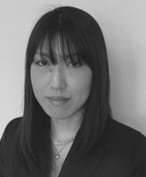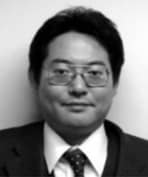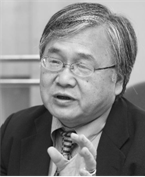Farben / Oberflächen
The soft, rounded form and a top panel made of natural wood lend the Yamaha TSX-B235D an air of calm and warmth. Enjoy music from CD, USB drive or smartphone via Bluetooth®—any way you want, any time you want. Audio and interior in perfect harmony: a serenely relaxing experience.
Calming design, serene sound
Fits your lifestyle
You’ll adore the soft, natural look of the TSX-B235D. The top surface is a flat natural wood panel, perfect for holding your smartphone, glasses or other personal accessories.
Designed for convenience
The unit is equipped with two USB ports — one for music playback, one for dedicated charging. Both ports can be used for charging devices even when the unit is in standby (power off).
*USB connections cannot be used with apps or to control the main unit.
Beautiful sound from palm of your hand
Bluetooth compatibility gives you wireless playback of music stored on your smartphone or tablet. What’s more, the TSX-B235D supports aptX® and AAC for uncompromised full-bandwidth audio over Bluetooth. Last but not least, NFC compatibility allows instant, automatic device pairing for ultimate simplicity.
Bring music even closer
Operating the unit is simplicity itself. With Yamaha’s free DTA CONTROLLER app, your smartphone or tablet becomes a sophisticated remote control, giving you complete control over power, volume, tone and a whole range of other functions with intuitive on-screen ease.

DAB / DAB+ tuner
DAB and DAB+ are Digital Audio Broadcasting formats that offer a large selection of radio stations with high sound quality. Other benefits include automatic tuning to available stations with a list to choose from, and display of information such as station name. You can preset 30 DAB / DAB+ stations.

App
IntelliAlarm
Ease into your day with a new approach to waking up.
Yamaha's new IntelliAlarm wakes you gently with the audio source of your choosing, first filtering out uncomfortable high frequencies, then gradually restoring the full audio spectrum before beeping to ensure you are awake.
This function makes waking experience as comfortable as possible.

Research report (English)
We have studied the effect of IntelliAlarm vs normal beep sound.
The research was done under contribution of Department of Medical Informatics, Tokyo Medical and Dental University Graduate School.
- Participants were awakened both IntelliAlarm and beep, after naps of 30, 60, 90 and 120 minutes for a total of 8 times. Subjective feelings just after awakening were measured with three psychological questionnaires. The differences between the subjective data with music and with an alarm tone were calculated and analyzed. The results indicate that awakening with IntelliAlarm was more comfortable than awakening with beep.
You can read the actual report from here.
Effect of Music upon Awakening from Nap

Yuki TANAKA
Yuki Tanaka was born in Oita, Japan, on November 9, 1981. She received a Bachelor of Engineering degree from Tokai University, Japan, in 2005, and a Master of Engineering from Tokai University, Japan in 2007. Since April 2007, she has been a Ph.D. student at Tokyo Medical and Dental University Graduate School, Department of Medical Informatics.
She studied piano in Japan under the pianist Toshie Nakashima since 1985, when she was 4 years old. She participated in piano contests, including the Student Music concours of Japan, Tosu City Hupfer Memorial Piano Concours, International Chopin Piano Competition in ASIA, the Oita Eisteddfod piano section, and the youth section of the Takahiro Sonoda Prize International Piano Contest. And she has received several prizes, including a prize for encouragement at the An die Musik Piano contest in 2009.
She is a part-time teacher at Nippon University (from 2008) and Kitazato University (from 2007). Her current research interests are “Music Therapy for Dementia Patients: Tuned for culture difference” and the “Effect of music upon awakening for comfortable awakening.”
She received the Nobuko Matsumae prize for encouragement of the Shigeyoshi Matsumae Memorial Fund from the Educational Foundation of Tokai University in 2005.

Hiroki NOGAWA
Hiroki Nogawa was born in Osaka, Japan in 1966. He graduated from Osaka University Medical School and received his Medical License in 1990. He worked as a surgical resident at Osaka University Hospital from June 1990 to June 1991 and at Kure National Hospital from July 1991 to June 1993. He received a doctorate in Internal Medicine from Osaka University in 1997. He was an Assistant Professor at Sapporo Medical School from April 1997 to June 1999 and a Lecturer at Sapporo Medical School from July 1999 to July 2000. He was a Lecturer in the Cybermedia Center at Osaka University from August 2000 to June 2004 and a Visiting Professor at Tokyo Medical and Dental University from August 2004 to July 2008. Since August 2008, he has been a Fellowship Researcher at the Japanese Medical Information Network Association.
He received the Kusumoto Award from Osaka University in 1990 and the Award of Advanced Infrastructure Technologies from the Award Committee of the Gigabit Network Symposium in 2004.
His current research interests are internet security technology, public policy on information and communication technologies (including medical informatics), sociolegal and technological issues (including copyright issues), and the physiological effects of music on the brain.

Hiroshi TANAKA
Hiroshi Tanaka was born in Tokyo, Japan in 1949. He received a Bachelor of Engineering degree from Tokyo University, Japan, in 1974 and a Master of Engineering degree from the Graduate School of Engineering, Tokyo University, Japan, in 1976. He received a Doctor in Medical Science degree from the Graduate School of Medicine, Tokyo University, Japan, in 1981 and a Ph.D. from the Graduate School of Engineering, Tokyo University, Japan, in 1983.
He was an Assistant Professor at the Institute for Medical Electronics in the School of Medicine of Tokyo University from 1982 to 1987, a Visiting Scientist at Uppsala University and Linkoping University in Sweden from 1982 to 1984, an Associate Professor at Hamamatsu University School of Medicine from 1987 to 1991, and a Visiting Scientist in the MIT Laboratory of Computer Science in 1990. He became a Full Professor of Bioinformatics at Tokyo Medical and Dental University in 1991 and has been the Dean of the Biomedical Science PhD Program of Tokyo Medical and Dental University since 2006.
He received an award for his achievements in information and communication technology from the Ministry of Internal Affairs and Communications in 2008.
His current research interests are medical informatics, systems biology, systems pathology, and clinical bioinformatics.
* Die technischen Daten können ohne vorherige Ankündigung geändert werden. Die abgebildeten Farben und Oberflächen können von den tatsächlichen Produkten abweichen.



















